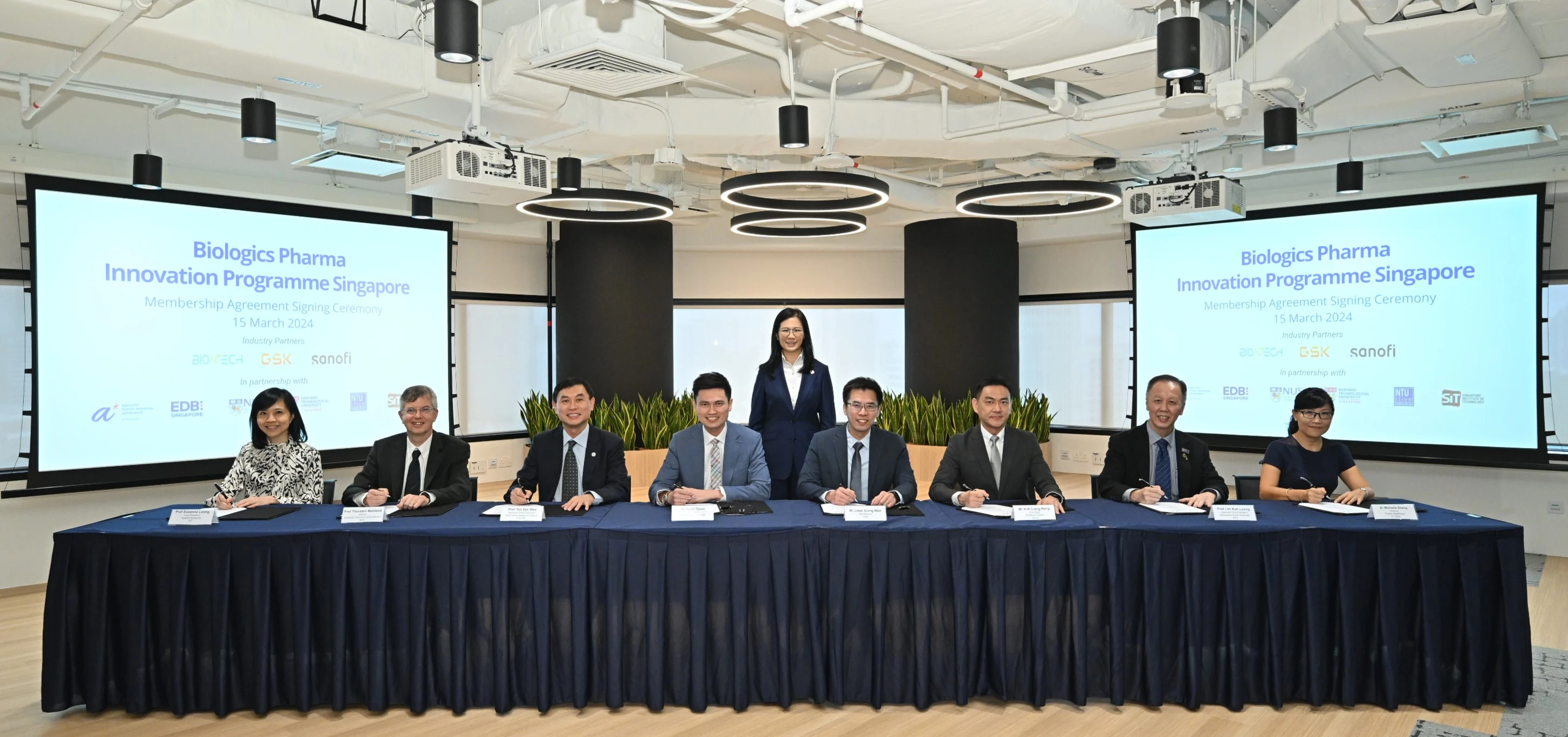The Biologics Pharma Innovation Programme Singapore (BioPIPS) consortium has been expanded with the addition of global immunotherapy company, BioNTech. The company joins global pharmaceutical companies GSK and Sanofi alongside Singapore’s research organisations and institutes of higher learning Agency for Science, Technology and Research (A*STAR), Nanyang Technological University, Singapore (NTU) and its innovation and enterprise company, NTUitive, National University of Singapore (NUS), and Singapore Institute of Technology (SIT).
The BioPIPS consortium is led by A*STAR and supported by the Singapore Economic Development Board (EDB). It aims to grow Singapore’s capabilities in biologics manufacturing, focusing on increasing productivity and sustainability, to transform the existing base of biologics production in Singapore.
The consortium will focus on biologics products including recombinant therapeutic proteins, and vaccines, which played a critical role in saving lives and preventing severe disease during the COVID-19 pandemic.
The BioPIPS consortium welcomes small and medium-sized enterprises, large local enterprises, and other multinational corporations to join as service and technology providers, to support the translation of technology developed by the consortium. Companies will be able to access shared resources, develop new capabilities related to biologics production, and contribute to the advancement of technologies developed. This will help them to respond more swiftly to sudden spikes in demand for related biopharmaceutical products during a pandemic, contributing to greater patient access among other benefits.
In 2022, the partners inked a Memorandum of Understanding and have since been involved in exploratory discussions facilitated by A*STAR and EDB to identify manufacturing challenges and define problem statements for potential research projects. They include the use of data analytics to improve manufacturing processes, and the development of more agile and sustainable solutions for manufacturing. More information on the BioPIPS consortium’s workstreams can be found in Annex B.



